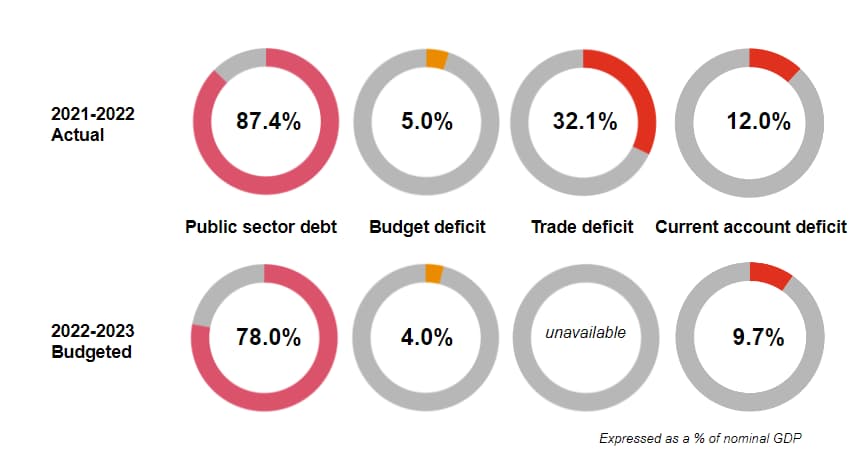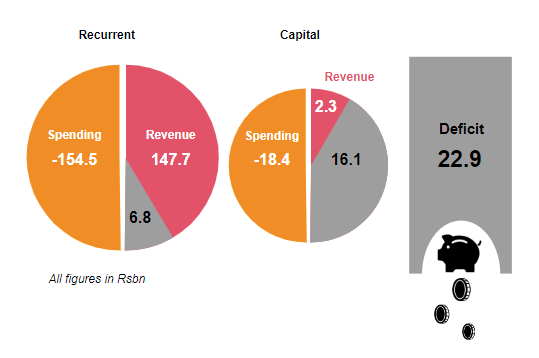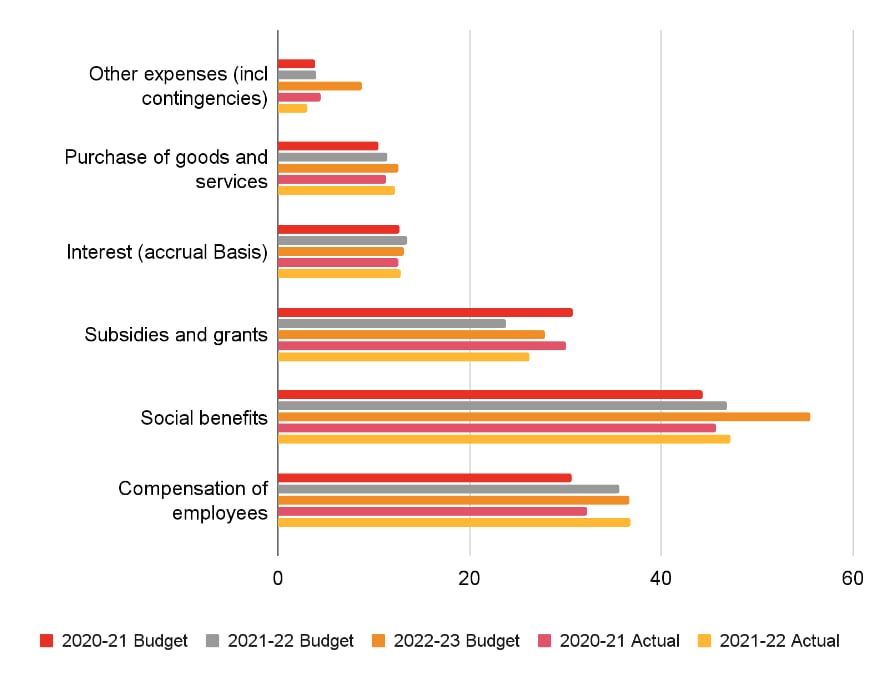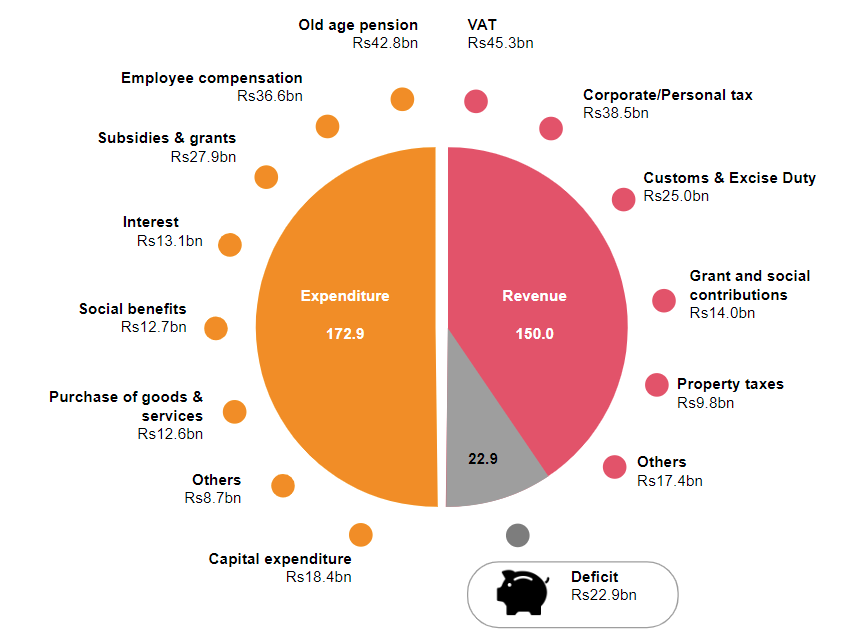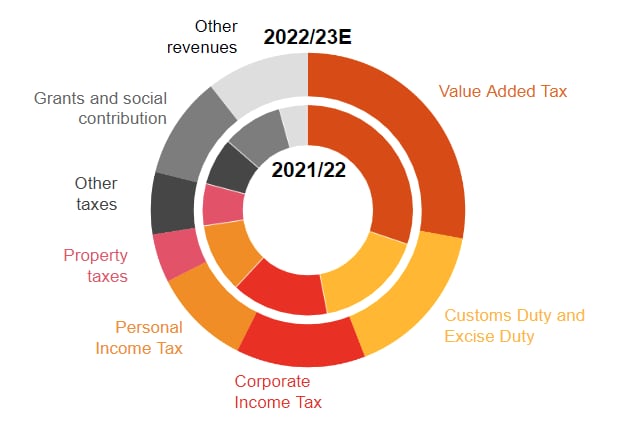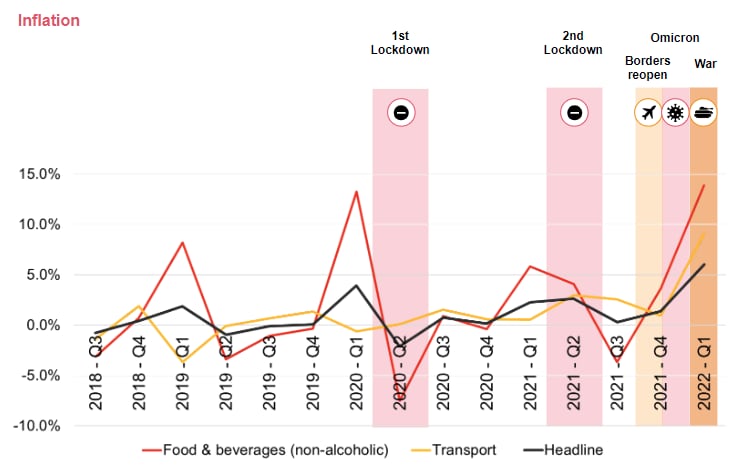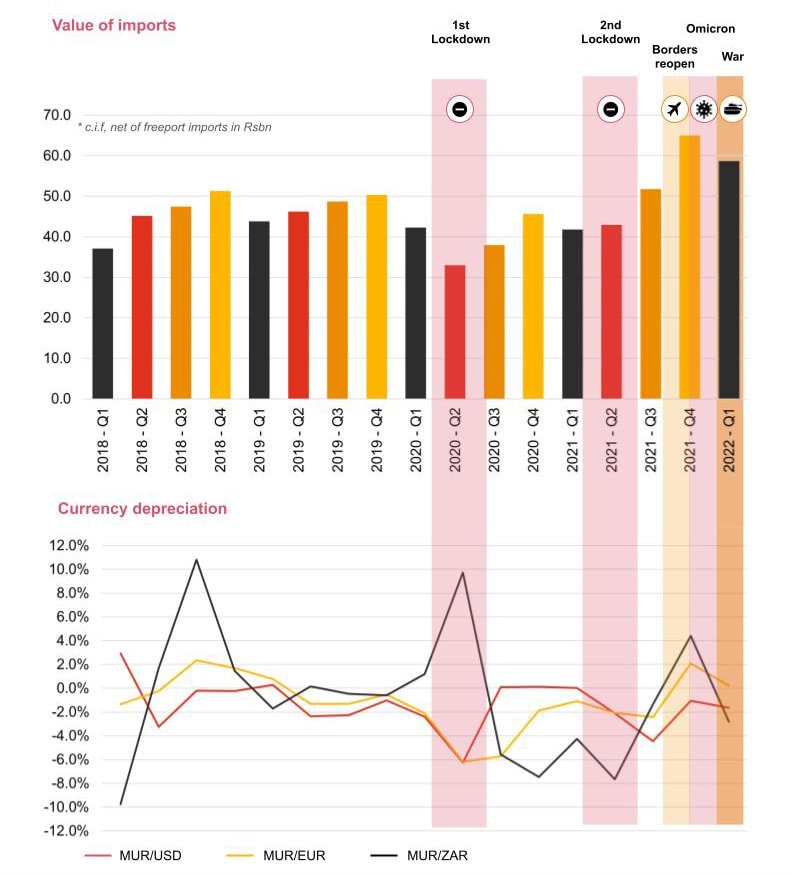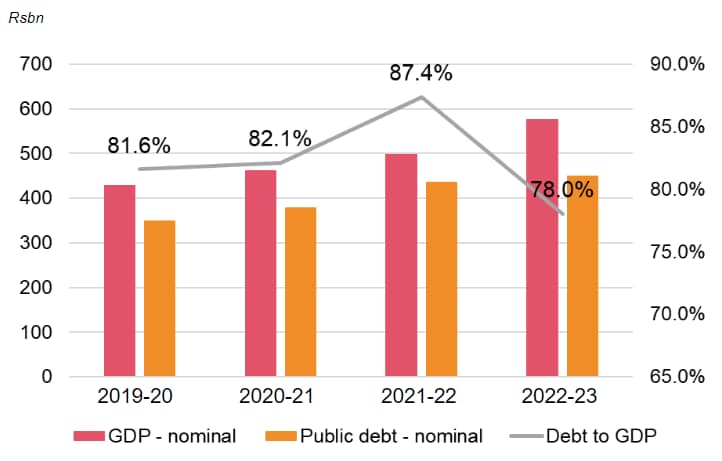{{item.title}}
{{item.text}}

{{item.text}}
By Deepa Jhamna, Associate Director
The year saw the implementation of a Project Implementation and Monitoring Agency (PIMA) as a unit under the Minitry of Finance to assist in and advise on the implementation of government projects, programmes and budgetary measures.
However, the Committee on Sustainability of Public Finances, announced as the body entrusted with the responsibility to address deficit financing and public sector debt, both in the short to long term, is still eagerly awaited.
The Minister of Finance announced a budget deficit for 2022-2023 of Rs22.9bn, very much in line with the prior year estimate of Rs24.9bn and representing 4% of GDP.
It is worth noting that the actual deficit for 2021-2022 was only 0.94% higher than budgeted.
It can generally be observed that the spending budget increases from budget to budget and year-on-year with actual spending subsequently reported in excess of budgeted amounts.
This is particularly true of social benefits and employee compensation allocations.
Total budgeted expenditure increased by 6.3% from prior budget. Projected spending on social benefits is expected to be 17.6% higher than the 2022 actual spend. Conversely, the budget for capital spending is 21.1% lower than 2022 actual.
It is worth highlighting at this point that the budget allocated to employee compensation is 0.45% lower than actual 2022!
Total revenue is expected to increase by 8.93% from prior year with a corresponding 10.7% increase in recurring revenue. VAT contribution to the total 2023 revenue is estimated at 30.2% up from 27.9% whilst the share of corporate income tax is expected to increase from 13.3% to 15.02%.
One of the key concerns expressed by the general population at large has been that of rising prices and a marked erosion of its purchasing power. Food inflation in Q1 2022 was 13.9% compared to reported headline inflation of 6%.
Disruptions in the global supply chain in the aftermath of the pandemic and in the wake of the Russo-Ukrainian war have seen increasing freight costs and commodity prices including fuel, in turn leading to rising inflation.
The depreciation of the rupee against its major trading currencies has also exacerbated the impact of imported inflation on the local purse as witnessed with the higher value of our imports for comparative quarters and quarter on quarter.
Projected at 91.4% of GDP under the old definition, it was revealed that the 2021-2022 debt to GDP ratio was contained at 87.4% and is projected to be even lower in 2023 at 78.0%.
Public sector debt is estimated at Rs449.6bn by end June 2023.
{{item.text}}

{{item.text}}

Anthony Leung Shing, ACA, CTA
EMA Deputy Regional Senior Partner, Country Senior Partner, PwC Mauritius
Tel: +230 404 5071

